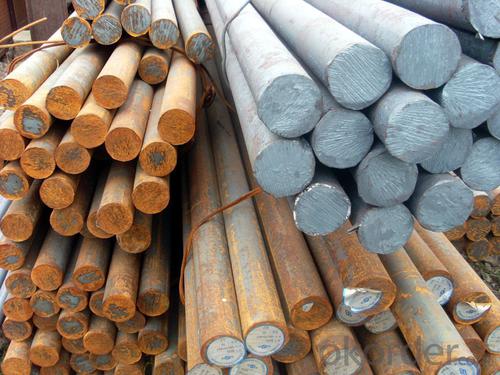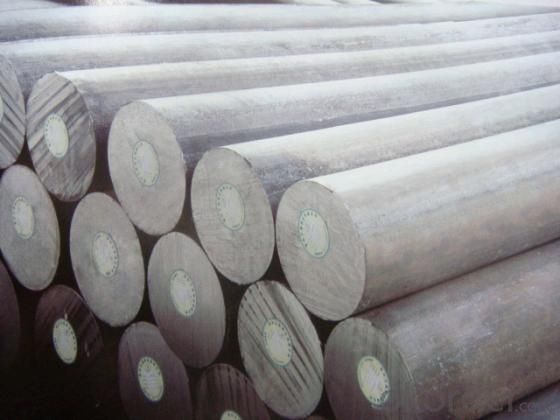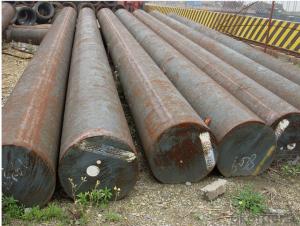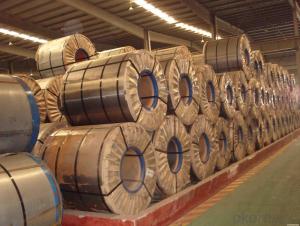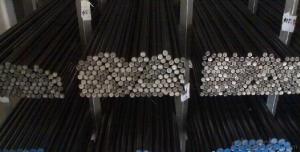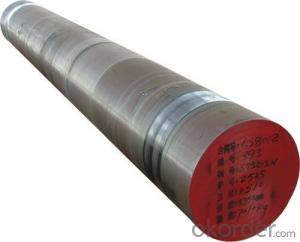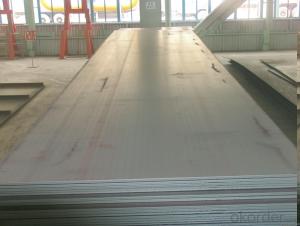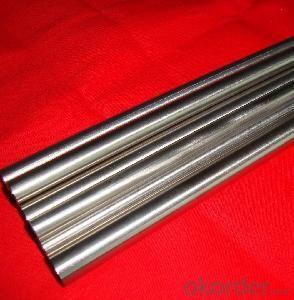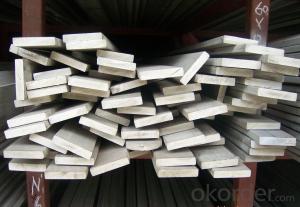65Mn Spring Steel Cold Rolled Strip Steel
- Loading Port:
- Tianjin
- Payment Terms:
- TT OR LC
- Min Order Qty:
- 25 m.t.
- Supply Capability:
- 50000 m.t./month
OKorder Service Pledge
OKorder Financial Service
You Might Also Like
Specification
65Mn Spring Steel Cold Rolled Strip Steel
Product Description:
1. Thickness: 0.14mm - 2.0mm
2. Width: 20mm - 600mm
3. Material: Q195, Q195L, SPCC,DC01, ST12,65mn
4. Origin of China
5. Package: Mill's Standard Seaworthy Package. With edge protector. Steel hoop and seals, or as per customer’s requirements
6. Surface: Full Hard, or bright anneal , or Drawing Quality, Oiled, Slightly Oiled, Unoiled
7. Coil weight: baby coil weight, 300~1000KGS, each pallet 2000~3000KGS
8. Shipping by container: Around 25 tons can be loaded in 1x20'FCL.
Delivery within 30days since prepayment or L/C confirmed
9. Slit edge or mill edge.
10. Accept any third party inspection. SGS, BV.
11. Making pipes, cold strip-welded pips, cold-bending shaped-steel, bicycle structures, small-sized press-pieces and house hold decoration goods.
Chemical Composition:
Grade | C | Si | Mn | Cr | Ni | Cu |
AISI 1055 | 0.62~0.70 | 0.17~0.37 | 0.50~0.80 | ≤0.25 | ≤0.30 | ≤0.25 |
Application:
(1) Zinc-coating base plates and cold-rolled annealing base plates;
(2) Construction and furniture;
(3) Automotive manufacturing, electric products, vehicles, aviation, precision
Meters, food cans, etc.
Product Show:
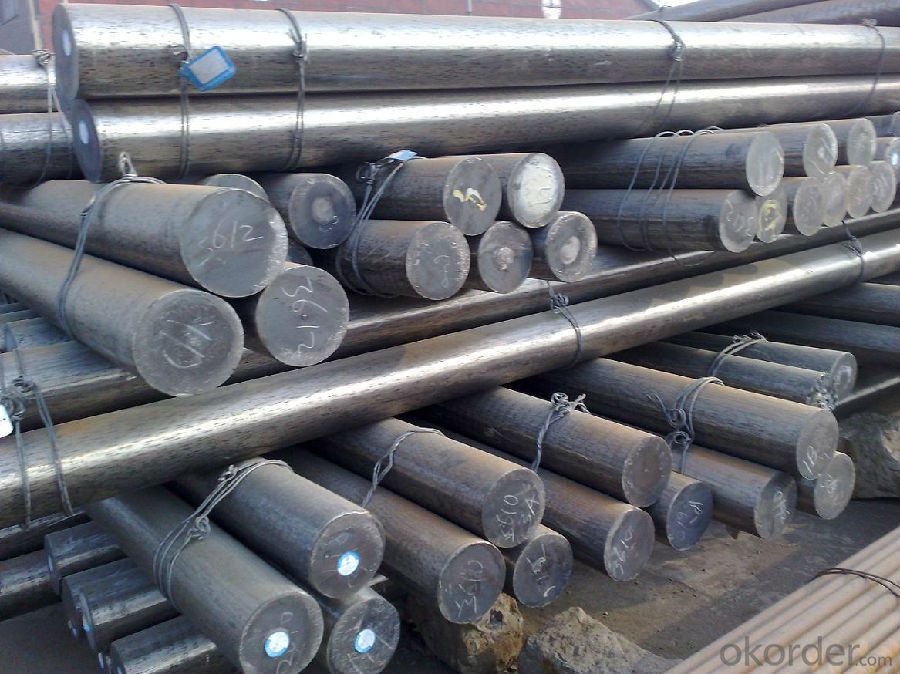
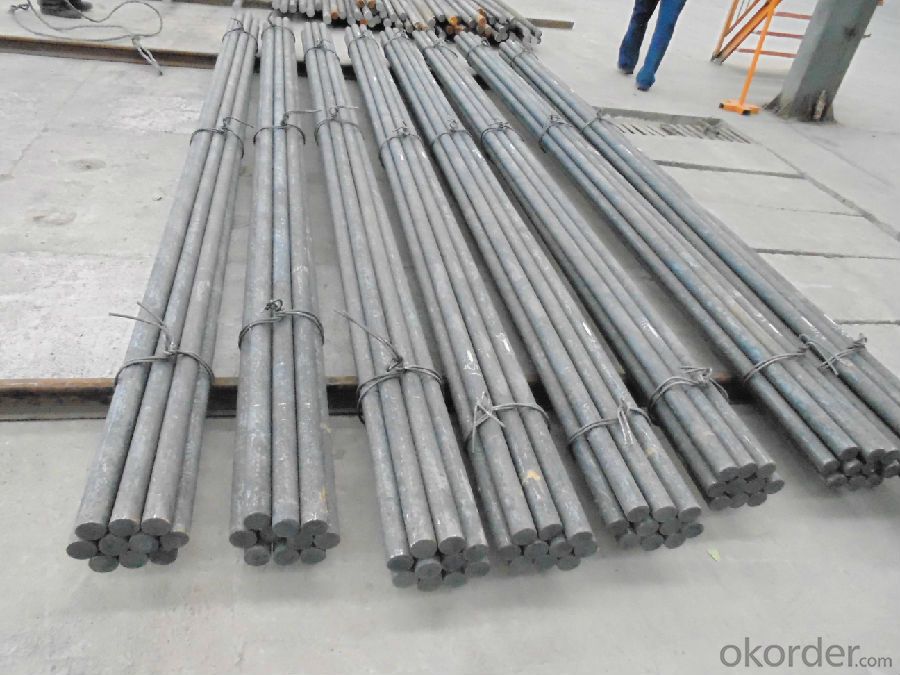
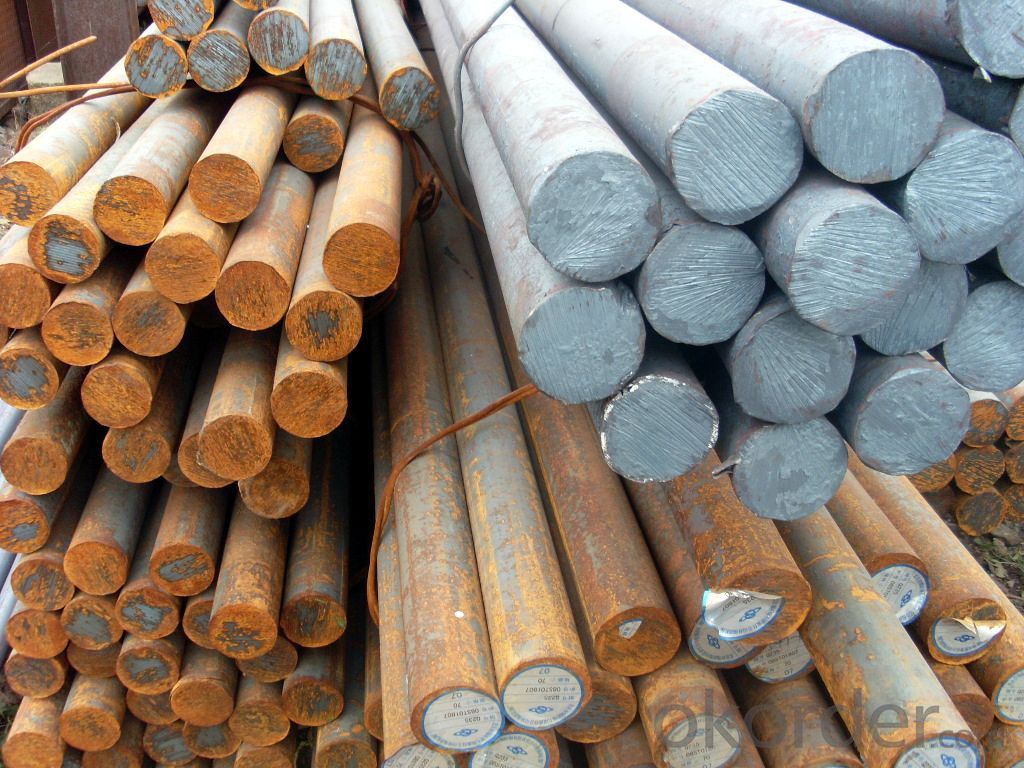
- Q: How does special steel perform in high-temperature mechanical applications?
- Special steel performs exceptionally well in high-temperature mechanical applications. Thanks to its unique composition and properties, such as high strength, excellent heat resistance, and thermal stability, special steel can withstand extreme temperatures without losing its structural integrity or mechanical properties. It exhibits minimal creep, oxidation, and deformation, ensuring reliable performance and durability in demanding high-temperature environments.
- Q: How does special steel contribute to the mining equipment industry?
- Special steel plays a significant role in the mining equipment industry by providing superior strength, durability, and resistance to harsh operating conditions. It is used in the manufacturing of various mining equipment components such as drill bits, crusher parts, conveyor belts, and buckets, enhancing their performance and longevity. Additionally, special steel enables the development of more advanced and efficient mining machinery, leading to increased productivity and safety in the mining sector.
- Q: How does special steel contribute to the automotive racing industry?
- Special steel plays a crucial role in the automotive racing industry by providing high-performance components and ensuring the safety and reliability of race cars. Its unique properties such as strength, durability, and heat resistance make it ideal for various applications in racing vehicles. One of the main contributions of special steel to the automotive racing industry is its use in the construction of engine parts. Components like crankshafts, camshafts, connecting rods, and valves are subjected to extreme forces and temperatures during racing. Special steel alloys, such as high-strength steels, are specifically designed to withstand these conditions and offer superior performance compared to conventional steel. This allows race car engines to operate at higher speeds, generate more power, and endure intense racing conditions without compromising reliability. Furthermore, special steel is also extensively used in the manufacturing of suspension systems and chassis components. Racing cars are subjected to extreme loads and vibrations while cornering and maneuvering at high speeds. The use of high-strength steel in these critical components enhances the structural integrity of the vehicle, improving stability, handling, and overall performance. In addition to performance benefits, special steel also contributes to the safety of race cars. Safety is of paramount importance in the racing industry, and the use of special steel in roll cages and crash structures provides enhanced protection to drivers in case of accidents. Special steel alloys, such as boron steel, offer exceptional strength and energy absorption capabilities, minimizing the risk of injury during crashes. Moreover, the lightweight nature of special steel allows for the reduction of overall vehicle weight, leading to improved fuel efficiency and better handling. By using advanced steel materials and design techniques, race car manufacturers can achieve a balance between strength and weight, optimizing performance without compromising safety. In summary, special steel plays a vital role in the automotive racing industry by contributing to the performance, safety, and reliability of race cars. Its unique properties allow for the development of high-performance engine parts, suspension systems, and chassis components, enabling race cars to withstand extreme conditions and achieve superior performance on the track. Moreover, special steel enhances the safety of race cars by providing robust crash protection, while also offering weight reduction benefits for improved fuel efficiency and handling.
- Q: How does special steel perform in forging applications?
- Special steel is highly regarded in forging applications due to its exceptional strength, durability, and resistance to wear and tear. The unique properties of special steel, such as high tensile strength, heat resistance, and corrosion resistance, make it an ideal choice for withstanding the extreme conditions involved in forging processes. When subjected to the intense heat and pressure of forging, special steel maintains its structural integrity and mechanical properties. It can withstand the extreme temperature fluctuations without losing its hardness or becoming brittle, ensuring that the final forged product is of high quality and reliability. Furthermore, special steel offers excellent machinability and formability, allowing it to be easily shaped and manipulated during the forging process. This ease of working with special steel enables manufacturers to create intricate and complex shapes, resulting in finely crafted forged components. Special steel also exhibits superior resistance to fatigue and impact, making it highly suitable for applications that require high strength and toughness. It can withstand repeated stress and load cycles without experiencing significant deformation or failure, ensuring the longevity and reliability of forged products. In addition, special steel is known for its resistance to corrosion and oxidation, which further enhances its suitability for forging applications. It can withstand exposure to harsh environments, chemicals, and moisture, making it ideal for manufacturing components that are subjected to demanding operating conditions. Overall, special steel's exceptional performance in forging applications can be attributed to its high strength, durability, resistance to wear and tear, excellent machinability, and corrosion resistance. These properties make it a preferred choice in various industries, including automotive, aerospace, construction, and oil and gas, where high-quality forged components are essential for reliable and efficient operations.
- Q: Can special steel be used in renewable energy applications?
- Yes, special steel can indeed be used in renewable energy applications. Special steel refers to high-performance alloys that possess specific properties such as high strength, corrosion resistance, and temperature resistance. These properties make special steel an excellent choice for various components used in renewable energy technologies. In wind energy, for example, special steel is used in the manufacturing of wind turbine components such as rotor shafts, gears, and bearings. The high strength and fatigue resistance of special steel ensure the durability and reliability of these components, allowing them to withstand harsh environmental conditions and prolonged use. Special steel is also utilized in solar power systems. Solar panels require sturdy and corrosion-resistant frames to support and protect the delicate photovoltaic cells. Special steel provides the necessary strength and resistance to weathering, ensuring the longevity of solar panels in outdoor installations. Furthermore, in hydropower applications, special steel is employed in the construction of turbines, penstocks, and other components that are exposed to high-pressure and corrosive environments. The excellent resistance to erosion, cavitation, and corrosion of special steel ensures the efficient and reliable operation of hydropower plants. Additionally, special steel finds applications in the manufacturing of batteries used in renewable energy storage systems. The high strength and thermal stability of special steel are crucial for the containment and protection of battery cells, ensuring their safe operation. In summary, special steel is well-suited for renewable energy applications due to its exceptional mechanical properties and resistance to corrosion and high temperatures. Its utilization in wind turbines, solar panels, hydropower systems, and energy storage technologies enhances the performance and reliability of these renewable energy solutions.
- Q: How does special steel contribute to the construction of infrastructure projects?
- Special steel plays a crucial role in the construction of infrastructure projects by providing enhanced strength, durability, and resistance to corrosion. It is commonly used in critical structural components such as beams, columns, and reinforcement bars, ensuring the stability and longevity of buildings, bridges, and other infrastructure. Additionally, special steel alloys offer flexibility in design, making it possible to create structures that are lighter and more cost-effective without compromising safety or structural integrity.
- Q: What are the advantages of using special steel over other materials?
- There are several advantages of using special steel over other materials. Firstly, special steel has higher strength and toughness, making it more durable and resistant to wear and tear. Secondly, it offers excellent corrosion resistance, preventing rust and extending the lifespan of the product. Additionally, special steel can withstand extreme temperatures, making it suitable for applications in various industries. Moreover, its versatility allows for easy customization and shaping, meeting specific design requirements. Lastly, special steel is known for its high recyclability, making it an environmentally friendly choice.
- Q: How does special steel contribute to sustainability?
- Special steel contributes to sustainability in several ways. Firstly, it is highly durable and has a longer lifespan compared to traditional steel, reducing the need for frequent replacements and minimizing waste. Additionally, special steel can be recycled and reused multiple times without losing its properties, reducing the demand for new raw materials and energy consumption in the production process. Furthermore, special steel offers superior strength and lightweight characteristics, enabling the development of more fuel-efficient vehicles and structures, thus reducing carbon emissions. Overall, special steel's durability, recyclability, and energy efficiency make it a key material in promoting sustainable practices in various industries.
- Q: What are the different non-destructive testing techniques used for special steel?
- There are several non-destructive testing (NDT) techniques that are commonly used for special steel to ensure its quality and integrity without causing any damage. These techniques are essential in industries where special steel is used, such as aerospace, automotive, and construction, to ensure that the material meets the required specifications and standards. Some of the commonly used NDT techniques for special steel are: 1. Ultrasonic Testing (UT): This technique involves the use of high-frequency sound waves to detect internal flaws, such as cracks, voids, or inclusions, in special steel. UT is highly effective in detecting subsurface defects and is widely used due to its versatility and accuracy. 2. Magnetic Particle Testing (MT): MT is a technique that uses magnetic fields and iron particles to detect surface or near-surface defects in special steel. It is particularly useful in identifying defects like cracks, seams, or laps, as the magnetic particles will accumulate at these locations, making them visible under proper lighting conditions. 3. Liquid Penetrant Testing (PT): PT is a widely-used method for detecting surface defects in special steel. It involves applying a liquid penetrant to the surface of the material, which seeps into any surface cracks or defects. After a specified time, the excess penetrant is removed, and a developer is applied to make the defects visible. 4. Eddy Current Testing (ET): ET utilizes electromagnetic induction to detect surface or near-surface defects in special steel. It is particularly useful in detecting cracks, corrosion, or metal loss in conductive materials. ET is a fast and accurate method, making it suitable for high-speed production environments. 5. Radiographic Testing (RT): RT involves the use of X-rays or gamma rays to examine the internal structure of special steel. It can detect various defects, including porosity, inclusions, and cracks. RT provides detailed images that help identify the location, size, and severity of defects. 6. Visual Testing (VT): VT is a simple yet crucial technique that involves a visual examination of the surface of special steel. It helps identify surface defects like scratches, dents, or corrosion. Although VT is not as sensitive as other NDT techniques, it is often used as a preliminary inspection method. Each of these non-destructive testing techniques has its own advantages and limitations. The selection of the appropriate technique depends on factors such as the type and size of the special steel, the required inspection depth, and the specific defects that need to be detected. By using a combination of these techniques, manufacturers and inspectors can ensure the quality and reliability of special steel products.
- Q: What are the main characteristics of pressure vessel steel forgings?
- Pressure vessel steel forgings possess several key features that render them suitable for utilization in pressure vessels. Firstly, these forgings are renowned for their exceptional strength and toughness. This attribute is of utmost importance as pressure vessels typically encounter significant internal pressure, necessitating steel capable of withstanding such force without deformation or rupture. Meticulous design and manufacturing ensure that the forgings possess the requisite strength and toughness to endure these pressures. Secondly, pressure vessel steel forgings exhibit remarkable resistance to corrosion. Given that pressure vessels frequently house corrosive fluids or gases, it becomes imperative for the steel employed in their construction to possess corrosion resistance. This feature guarantees the durability and dependability of the pressure vessel. The steel forgings are often crafted with specific alloying elements that enhance their resistance to corrosion. A further notable characteristic of pressure vessel steel forgings lies in their ability to retain their mechanical properties at elevated temperatures. Pressure vessels may be subjected to heightened temperatures due to the nature of the processes or fluids they contain. The forgings are designed to maintain their strength and toughness even in these high-temperature conditions, thereby ensuring the safety and reliability of the pressure vessel. Moreover, pressure vessel steel forgings typically undergo stringent quality control measures during their manufacturing process. This is essential to ensure that the forgings meet the prescribed standards and specifications for pressure vessel applications. The manufacturing process incorporates comprehensive inspections, testing, and documentation to guarantee compliance with the necessary quality and safety requirements. In summary, the primary characteristics of pressure vessel steel forgings encompass high strength and toughness, exceptional corrosion resistance, the ability to endure high temperatures, and stringent quality control measures. These attributes render pressure vessel steel forgings ideal for utilization in pressure vessels, providing the requisite strength, reliability, and safety demanded by such applications.
Send your message to us
65Mn Spring Steel Cold Rolled Strip Steel
- Loading Port:
- Tianjin
- Payment Terms:
- TT OR LC
- Min Order Qty:
- 25 m.t.
- Supply Capability:
- 50000 m.t./month
OKorder Service Pledge
OKorder Financial Service
Similar products
Hot products
Hot Searches
Related keywords




